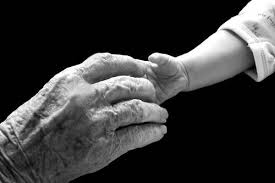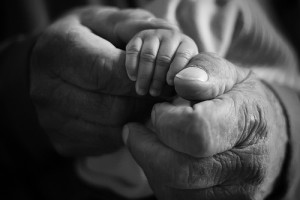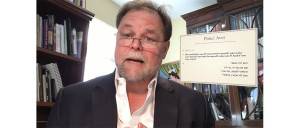A meaningful connection between our elder generations of age 50+ and our synagogues has profound implications in keeping our tradition vibrant and alive. Active embrace of these cohorts is a key to Jewish continuity and enriching succeeding generations. We can accomplish this provided we are prepared to actively engage them in our tradition.
We are inheritors of a great tradition. Accumulated wisdom and insight has been passed from one generation to the next, being revised and revived at each step along the way. We view ourselves as links in a sacred chain. As we have received the tradition, we too shall pass it on. This is the Shalshelet HaKabbalah. But transferring our legacy is not automatic. But it is a challenge however to pass on the values successfully since the next generation often speaks a different language and lives within a different culture.
The synagogue has traditionally been a part of this process. But as choices continue to open up to us in our modern society, expressions of meaning and community do not necessarily happen by joining synagogues. We can seek meaning and community elsewhere. And so we see the Baby Boomer generation leaving synagogues and their children not joining. We can still connect however through actively embracing those who remain connected and most visibly need us, namely the elder cohort, dubbed “The Longevity Generation” by Rabbi Richard Address. We can offer access to community and meaning-making that clearly demonstrates the value of Jewish community in connection to a synagogue. The Shalshelet HaKabbalah or Chain of Tradition is a model that still works as an expression of continuity and community but only if we fully embrace it.
The Longevity Generation is in the greatest need of the services and community that we offer. Teaching, pastoral care, community and social engagement, end of life care including hospital visits; hospice and end of life life-cycle events are all important services to this age group. If we give this generation all that they need, providing a rich and meaningful engagement with Judaism, they are not the sole beneficiaries; the value flows to their adult children as well. Further, this is not limited to current synagogue members. It can be an effective outreach to the older unaffiliated as well. It is an investment of time and caring that might yield dividends.
The significance of our service and community support is understood and appreciated by the Boomers through the meaning we give their parents and the burden we help to share through our caring presence. As the Boomers live through this experience they hopefully are drawn into it, provided caregivers, the congregation, and we the rabbis purposefully reach out to them while we are reaching out to their parents. Besides the support we provide the elder generation directly, we can help facilitate the often-difficult conversations that need to occur, from ethical wills and end of life decisions, to the shift away from independence to more dependent forms of living and the sharing of personal stories and family history as legacy. We invite the Boomers to be a part of a caring community and continue the conversations with us, others like them and hopefully those who have yet to experience these important transitions.
Through helping the Longevity Generation we help and embrace the Boomer Generation who experience the value of Jewish Community. This understanding inclines them to share the meaning that they have known. In this context of values and community, the Boomers can be prompted to reframe the congregation experience from one of obsolete Institutional membership to a relational community of belonging.
Our elders have much to teach us. Beyond learning their wisdom, we can also learn about our own humanity through the sacred service I describe. Our elders are valuable and important parts of who we are. The Longevity Generation deserves our honor and respect. As we engage in these behaviors of lifting them up, the integral and vital values of Judaism are naturally transferred to the next generation.
Hazak Hazak v’nitchazek
We are strong and together we are strengthened.
 Often we leave important conversations unspoken. The discomforts we believe these conversations will cause make us shy away from them. But then we miss an extraordinary opportunity. It is never too late to tell those we love that indeed we do love them, until they are gone. We can talk about our lives, the triumphs and the tribulations, the things in which we had success and the times when we missed the mark. We can give them an understanding of their meaning to us; for too often those thoughts are not expressed. By sharing our aspirations and our vulnerabilities we can elevate our relationships by bringing those we care about close to us.
Often we leave important conversations unspoken. The discomforts we believe these conversations will cause make us shy away from them. But then we miss an extraordinary opportunity. It is never too late to tell those we love that indeed we do love them, until they are gone. We can talk about our lives, the triumphs and the tribulations, the things in which we had success and the times when we missed the mark. We can give them an understanding of their meaning to us; for too often those thoughts are not expressed. By sharing our aspirations and our vulnerabilities we can elevate our relationships by bringing those we care about close to us.

